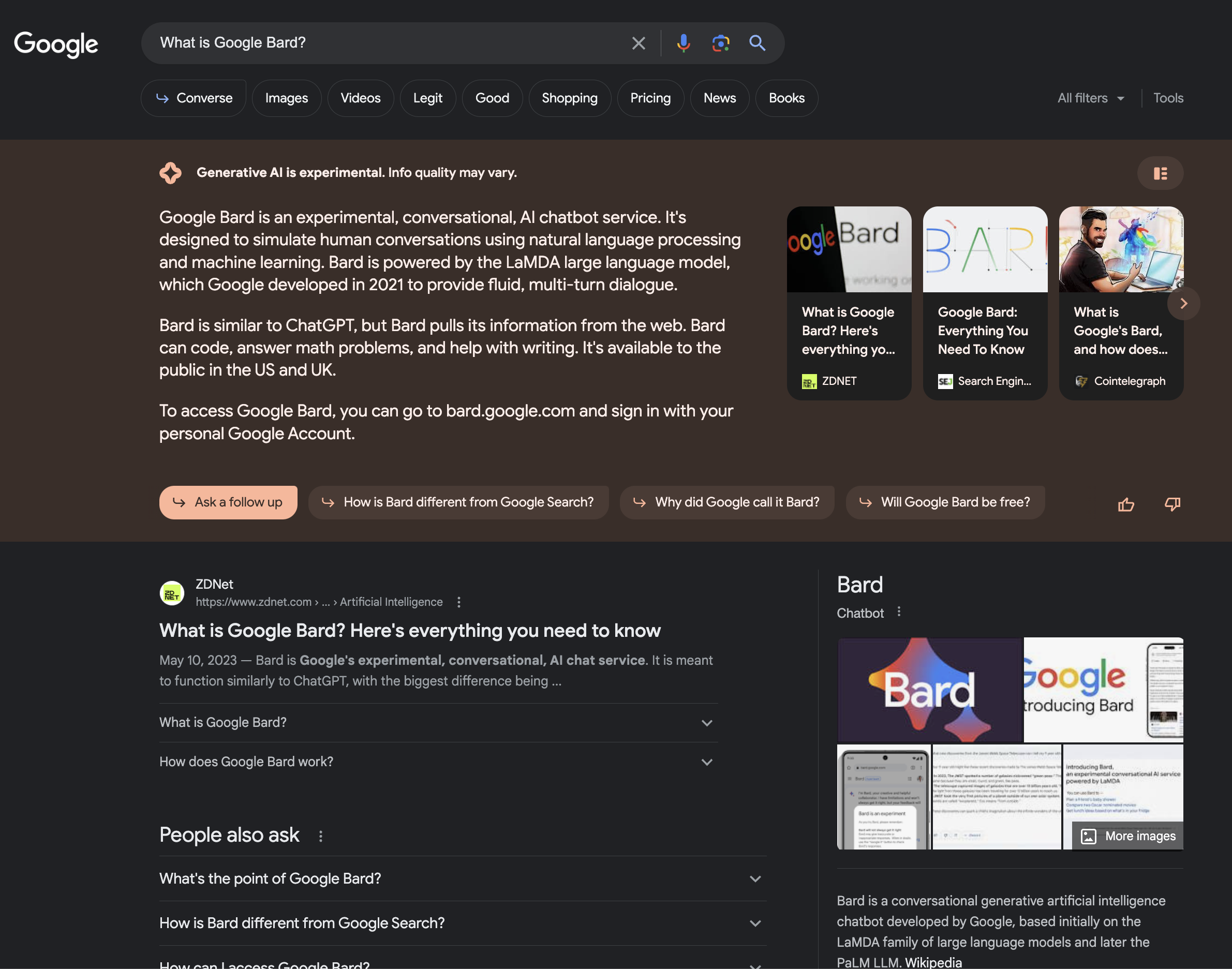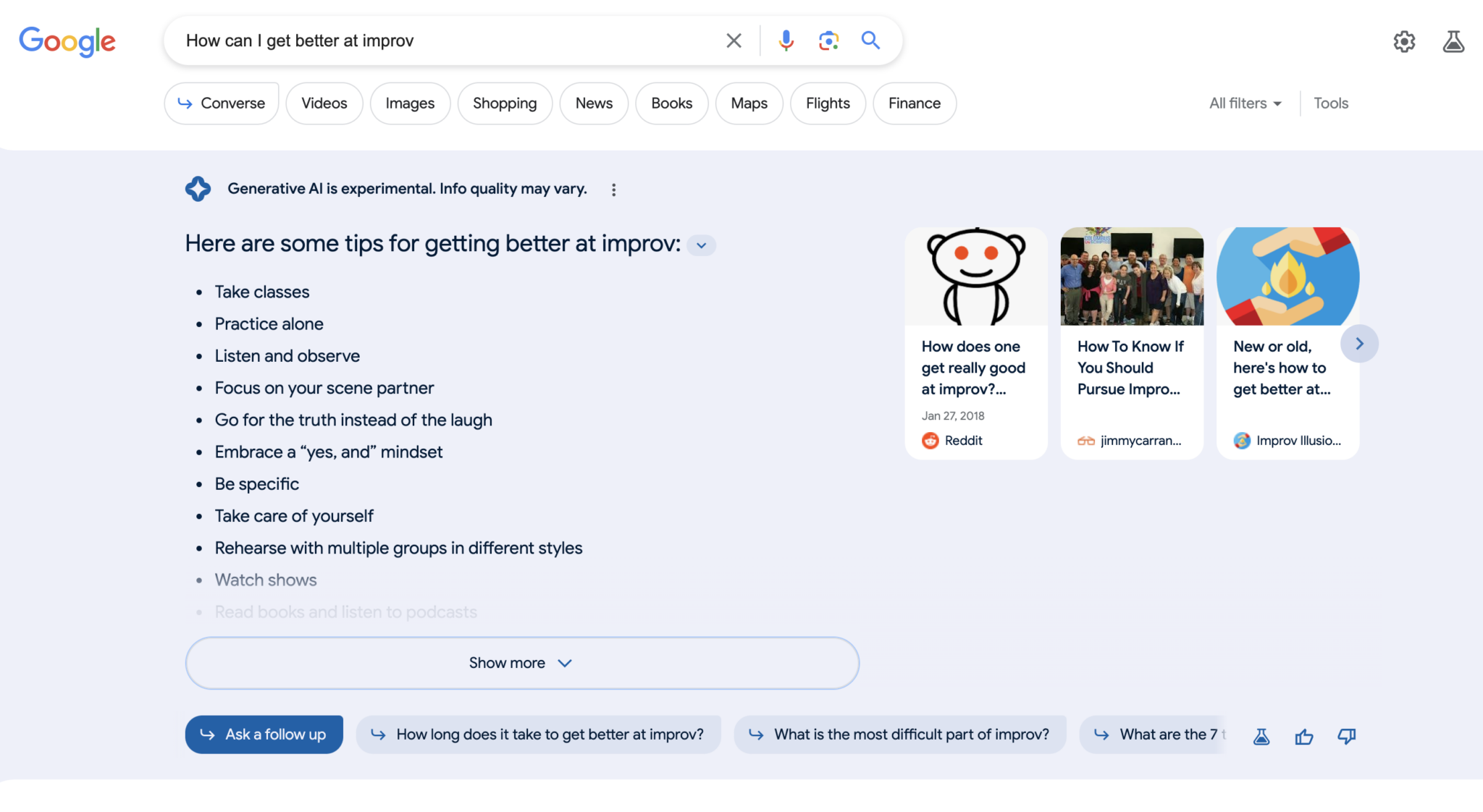In 2024, the landscape of online search is set to undergo a transformative shift with Google’s Search Generative Experience (SGE) and the integration of Generative AI. As consumer interest in AI-powered search continues to grow, marketers need to stay ahead of the curve to harness the full potential of these advancements.
The Evolution of Google’s SGE
Originally slated to conclude in December 2023, the Google SGE experiment has taken an unexpected turn with the disappearance of its end date on the Labs website. This hints at a continued focus on refining and expanding the capabilities of SGE, demonstrating Google’s commitment to enhancing the search experience with AI.
Consumer Interest in AI-Powered Search
A recent survey in the United States revealed a significant interest in AI-powered search among adults, with over 25% expressing a desire for AI-driven features. From smart assistants to shopping recommendations and ads, the appeal of AI in search is evident, setting the stage for a paradigm shift in user expectations.

Trust in AI-Powered Results
Crucially, the survey indicated that over 25% of users trust AI-powered search results, brand recommendations, and ads. This trust factor opens up new possibilities for marketers to leverage AI-generated content effectively.
Google’s Vision and Priorities
During a Q2 earnings call, Google’s CEO, Sundar Pichai, emphasized the evolution of search with generative AI as a top priority. The Search Generative Experience aims to make search more natural and intuitive, providing faster responses and unlocking entirely new types of questions that search can answer.
Opportunities for Marketers
As Google continues to experiment with new ad placements and formats within SGE, advertisers can expect native ad formats customized to each step of the user’s search journey. The positive response to ads in AI-powered search creates opportunities for businesses to connect with their audience more effectively.
The Role of Generative AI in Search

Google’s SGE utilizes generative AI to connect the dots for users exploring various topics, helping them make informed decisions. With over 20% of people regularly using generative AI, it’s clear that these tools are becoming integral to both work and leisure.
Google’s Data Advantage
An analysis by Baron Insights highlighted Google’s advantage in maintaining its lead in search through its massive dataset, encompassing broad search queries and interactions with billions of consumers globally. This advantage extends beyond traditional search into domains such as maps, images, videos, audio, and more.
Gemini and SGE Performance
Google’s introduction of Gemini, a family of large language models, has played a crucial role in enhancing SGE’s performance. The integration of Gemini Pro in SGE’s companion, Bard, showcases Google’s commitment to pushing the boundaries of AI capabilities.
Local SEO Impact
BrightEdge’s analysis revealed that over one-third of SGE results include local packs, emphasizing the impact of SGE on local SEO. Marketers should take note of the changing content formats presented in SGE responses, including the introduction of Product Viewers for AI-powered shopping assistance.
Future Trends and Competitiveness
While Google’s Gemini represents a significant step in AI inferencing capabilities, competition with OpenAI’s GPT-4 remains a focal point. Future upgrades to Gemini are expected to position Google AI as a major player in the rapidly advancing AI landscape.
TRY NOW
In conclusion, the integration of Google’s Search Generative Experience and Generative AI in 2024 presents a wealth of opportunities for marketers. By understanding and adapting to these evolving trends, businesses can position themselves at the forefront of the AI-powered search revolution, ensuring a competitive edge in the dynamic digital landscape.



